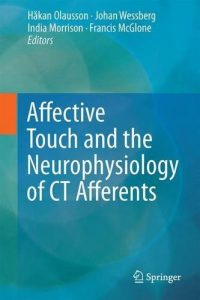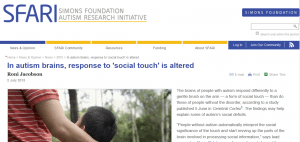Autism Social Touch Somatosensory & Affective Neuroscience Group
CTs & Microneurography in Moscow
As part of SomAffect’s developing collaboration with Anton Varlamov & Galina Protnova at the Russian Institute of Higher Nervous Activity and Neurophysiology, Francis McGlone & Adarsh Makdani were recently invited to help establish a Microneurography lab in Moscow. The first series of experiments proved extremely promising, and included Read more…
 CT afferents are receptors in mammalian hairy skin that fire action potentials when the skin is touched lightly which makes them particularly important in affective touch. Traditionally neuroscientific research has focused on more discriminative and haptic properties of touch that are mediated by large myelinated afferents and the coding properties and functional organization of unmyelinated CT afferents have been studied much less. The proposed volume will draw together existing knowledge in this nascent field. Separate sections will address (1) how we can measure affective touch, (2) CT structure and physiology, (3) CT processing, (4) the contribution of CTs to sexual behavior, (5) clinical relevance, (6) commercial relevance, and (7) future research considerations.
CT afferents are receptors in mammalian hairy skin that fire action potentials when the skin is touched lightly which makes them particularly important in affective touch. Traditionally neuroscientific research has focused on more discriminative and haptic properties of touch that are mediated by large myelinated afferents and the coding properties and functional organization of unmyelinated CT afferents have been studied much less. The proposed volume will draw together existing knowledge in this nascent field. Separate sections will address (1) how we can measure affective touch, (2) CT structure and physiology, (3) CT processing, (4) the contribution of CTs to sexual behavior, (5) clinical relevance, (6) commercial relevance, and (7) future research considerations. 


 Francis McGlone, and research by SomAffect & Collaborators, are featured in article about
Francis McGlone, and research by SomAffect & Collaborators, are featured in article about